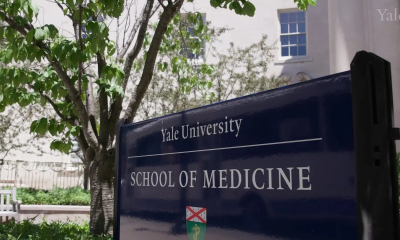A joint investigation conducted by several European authorities, supported by Europol and Eurojust, culminated in the arrest of nine suspects following the fraud case of investment in cannabis plants “Juicy fields”. According to court estimates, the total damages resulting from false investments in the announced crowdsourcing platform for cannabis cultivation amount to 645 million euros, but “the real and undeclared damages could be significantly higher”. There are more than 186.000 people harmed by the Juicy Fields case.
The police operation was carried out yesterday, April 11, 2024, and brought together police from several European countries. More than 400 agents from 11 countries executed nine arrest warrants and carried out 38 home searches. During the day of investigation and action, 4.700.000 euros were seized or frozen in bank accounts, 1.515.000 euros in cryptocurrencies, 106.000 euros in cash and 2.600.000 euros in real estate assets. Authorities also seized several luxury vehicles, works of art, cash and various luxury items, as well as a large number of electronic devices and documents.
 According to court estimates, the total damages resulting from false investments in the announced crowdsourcing platform for cannabis cultivation “amount to 645 million euros, but the real and undeclared damages could be significantly higher”.
According to court estimates, the total damages resulting from false investments in the announced crowdsourcing platform for cannabis cultivation “amount to 645 million euros, but the real and undeclared damages could be significantly higher”.
In total, around 550.000 participants around the world, the majority of whom are European citizens, have been registered as online investors. Using bank transfers or cryptocurrencies, around 186.000 participants actually transferred funds into the elaborate Ponzi scheme, active from early 2020 until July 2022.
Suspects are mostly Russians, but many nationalities are involved
The suspects, whose nationalities are mainly Russian, but also Dutch, German, Italian, Latvian, Maltese, Polish, Jordanian, North American and Venezuelan, used advertisements on social media to attract victims to their websites. These platforms offered promising investment opportunities for crowdsourcing in the cultivation, harvesting and distribution of cannabis plants for use for medicinal purposes.
With a minimum initial investment of at least 50 euros in this so-called “e-growing” opportunity, investors were promised that they would be linked to medical cannabis producers. After purchasing a cannabis plant, the platform assured investors – also known as e-cultivators – that they would soon be able to earn high profits by selling the plants to authorized buyers. Although the company has promised annual returns of 100% or more, it has not revealed exactly how it would achieve that, much less how it would be able to guarantee it.
According to the Europol Press Release, “The legalization of cannabis cultivation or the expansion of the permitted THC content in cannabis products for personal, recreational and therapeutic purposes is a significant topic of public debate in the EU. This discourse is further fueled by the reality that cannabis is one of the most consumed illicit substances, both in the European Union and worldwide. As seen in other contexts, criminal networks are particularly adept at applying new narratives to existing criminal practices, especially during periods of changing regulatory frameworks, which can open a window of opportunity for fraudsters to advertise low-risk investment opportunities and high profits.”
A classic “too good to be true” Ponzi scheme
A Ponzi scheme is a type of investment scam in which criminals promise high returns with little or no risk to investors. Instead of actually generating profits through legitimate trading activities, criminals use money from new investors to pay returns to previous investors. This creates the illusion of a profitable company, but in reality the scheme collapses when there are not enough new investors to sustain the payments, leaving most investors with losses.
 For example, the average investor – even a cautious one – would make an initial investment of 50 euros and receive a payment that would double their money shortly afterwards. Motivated by these financial gains, many investors increased their bets and paid hundreds, thousands or, in many cases, even tens of thousands of euros. The platform feigned credibility, as it was not only represented in the digital world, but also maintained the image of a reliable legal business structure, with physical offices, employees and representation at cannabis industry events. Initially, the more than 500.000 electronic producers were receiving returns on their investment. However, in July 2022, the criminals behind the scheme abruptly removed company profiles from social media and prevented users from logging into their accounts, thus freezing money withdrawals.
For example, the average investor – even a cautious one – would make an initial investment of 50 euros and receive a payment that would double their money shortly afterwards. Motivated by these financial gains, many investors increased their bets and paid hundreds, thousands or, in many cases, even tens of thousands of euros. The platform feigned credibility, as it was not only represented in the digital world, but also maintained the image of a reliable legal business structure, with physical offices, employees and representation at cannabis industry events. Initially, the more than 500.000 electronic producers were receiving returns on their investment. However, in July 2022, the criminals behind the scheme abruptly removed company profiles from social media and prevented users from logging into their accounts, thus freezing money withdrawals.
Complex investigation involved several countries
The widespread occurrence of police reports across Europe prompted Europol to initiate a coordinated approach to investigations involving multiple EU and non-EU countries. This law enforcement focus on JuicyFields and related investment platforms was followed by the creation of a joint investigation team at Eurojust, led by the German and Spanish Police, the French Gendarmarie and supported by Europol, the UK National Crime Agency and other law enforcement authorities in the United Kingdom and other Member States.
Field operations were carried out by:
Germany: Berlin Public Prosecutor's Office; Berlin Criminal Investigation Department (LKA)
Spain (España): Central Investigating Judge no. 6 in the National Audience; National Police (UDEF Central Brigade against Economic Crime, Financial Fraud Group)
França: Paris Prosecutor's Office JUNALCO (National Jurisdiction against Organized Crime); Gendarmerie Nationale (Rennes Research Section)
Estonia: Office of the Attorney General; Police and Border Guard Board
Latvia: Attorney General; International Cooperation Department and Economic Crime Suppression Department of the Central Criminal Police Department of the State Police
Italy: National Police Postal Police Service – Cybersecurity Operational Section, Macerata, and Marche Cybersecurity Operational Center
Malt: Malta Police Force – International Relations Unit
Poland: Public Prosecutor's Offices in Jelenia Góra, Lublin, Warsaw, Prague and Wrocław; Central Office for Combating Cybercrime
Portugal: Lisbon Central Prosecutor's Office (DCIAP); Judiciary Police
United Kingdom: National Crime Agency
After meticulously gathering digital evidence, investigators created a joint intelligence picture that allowed police forces across Europe to identify the suspects and begin a wave of arrests.
One of the main high-value targets in this investigation was traced to a residence in the Dominican Republic. The Russian citizen, suspected of being one of the main organizers of the fraudulent scheme, had a property where he lived searched by the Dominican Republic authorities, with agents from the Spanish investigation team, together with a Europol specialist deployed on site to help with coordination.
Europol supported this massive cross-border investigation from the beginning, taking the lead in operational coordination and providing tailored analytical support. Furthermore, Europol shared results of financial investigations as well as other information with the countries involved. On the day of the action, Europol deployed agents with mobile offices to various locations around the world. Eurojust managed a coordination center, made up of senior police officials from different investigative authorities, prosecutors and Europol staff, to help coordinate legal coercive measures in several countries and across time zones.






 According to court estimates, the total damages resulting from false investments in the announced crowdsourcing platform for cannabis cultivation “amount to 645 million euros, but the real and undeclared damages could be significantly higher”.
According to court estimates, the total damages resulting from false investments in the announced crowdsourcing platform for cannabis cultivation “amount to 645 million euros, but the real and undeclared damages could be significantly higher”. For example, the average investor – even a cautious one – would make an initial investment of 50 euros and receive a payment that would double their money shortly afterwards. Motivated by these financial gains, many investors increased their bets and paid hundreds, thousands or, in many cases, even tens of thousands of euros. The platform feigned credibility, as it was not only represented in the digital world, but also maintained the image of a reliable legal business structure, with physical offices, employees and representation at cannabis industry events. Initially, the more than 500.000 electronic producers were receiving returns on their investment. However,
For example, the average investor – even a cautious one – would make an initial investment of 50 euros and receive a payment that would double their money shortly afterwards. Motivated by these financial gains, many investors increased their bets and paid hundreds, thousands or, in many cases, even tens of thousands of euros. The platform feigned credibility, as it was not only represented in the digital world, but also maintained the image of a reliable legal business structure, with physical offices, employees and representation at cannabis industry events. Initially, the more than 500.000 electronic producers were receiving returns on their investment. However, 



































